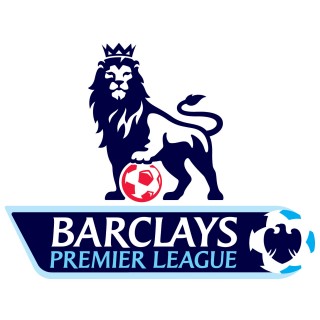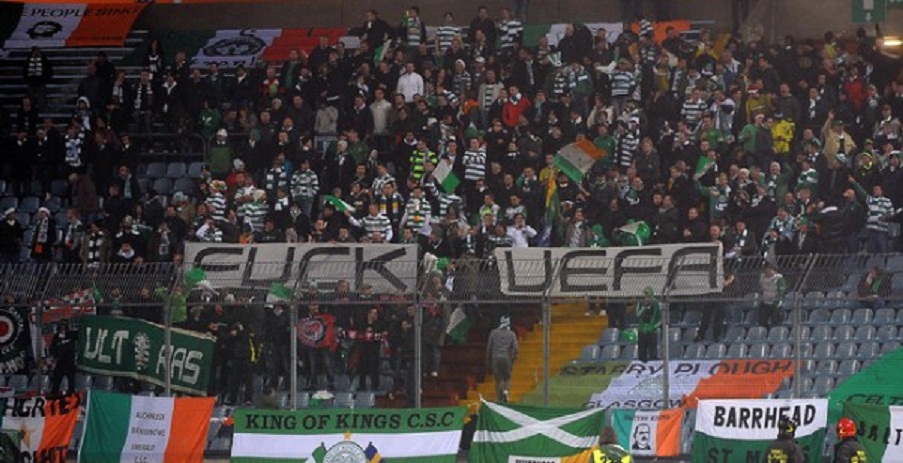Firstly, the Celtic Social Charter states that ‘the best that Celtic stands for is building on the renowned qualities of our supporters’. Running with the belief that Celtic were to play in League One, can it be argued that building on the qualities of the supporters is by making them travel to away matches in Yeovil, Bournemouth, Portsmouth, Southend and Exeter? Jock Stein will always be right – football without the fans is nothing. This isn’t just a statement to print on the inside of a football shirt so that fans feel that they belong, it has to be the focal aspect of many clubs. Celtic, however, are lucky in this regard in that they have hundreds of thousands of supporters. The diaspora argument is a flimsy one, because whilst Celtic has support across England, it does not mean that playing in England will be a positive move. By this logic, Manchester United will help to implement a new Asian Super League.
I did read Celtic supporters, both on forums and on twitter comment that the club may be exploring purchasing either Port Vale or Portsmouth Football Club as a way of establishing themselves in England. Whilst unlikely, the subject did spark debate. If this situation ever occurred, the club may as well re-write the social charter, and the club would be forever filled with a discreditable sense of ignominy. The shared set of values listed in the social charter includes fair play. Whilst this is a somewhat abstract term, can it be claimed with any credence that destroying another football club to satisfy a lust for further profiteering is paramount to fair play? The aforementioned clubs lived beyond their means, but to replace them without any thought for the supporters is distasteful. For all the gloating about Rangers starting again as a newco with no titles and history, surely Celtic would be in the same situation with this shady route into England.
It all relates to what supporters truly desire? In recent years, Peter Lawwell has been castigated for not overspending and ‘allowing’ Rangers to achieve three league titles in a row. Whilst Lawwell has many faults, and could easily have loosened the strings to sign Steven Fletcher in 2009, he is at least running the club in a prudent manner. Should success on the pitch be won at all costs, spending money that doesn’t exist? A quick glance to the other side of Glasgow is all that is needed here.
But where does this leave the club? Scottish football is rotten to the core, its decaying governing body and media being exposed for years of self-preservation and collaboration with one of the leading clubs. It needs a complete overhaul. The money is in England, but is Celtic FC’s future? Cardiff, Swansea, Newport, Wrexham, Colwyn Bay and Merthyr Town are all Welsh clubs that play at varying levels of the English league pyramid, but the key difference is that the Welsh Premier League is a semi-professional league, and one that only began in 1993. If the SPL can no longer be a sustainable model, this may also be the case in Scotland, but even then, is moving to England the most prevalent alternative? Would a semi-professional Celtic that stays true to its charitable and social roots be greater than a club that is desperate to play in the league of another nation, with the emphasis placed upon the on-field success?
The notion of an Atlantic League is also raised whenever there is an article regarding Celtic playing in the English leagues. This is a far more interesting discussion as it highlights a wider issue of nationalism and internationalism. Celtic FC playing in England whilst the SPL is a professional league simply helps to destroy the legitimacy of the Scottish FA (if there is any legitimacy left) and, more significantly for some, may speed up the idea of a British FA with a British football team. An Atlantic League, however, may lead towards a wider European Super League, franchised and padlocked in the same way the NFL is.
However, problems exist straight away with a wider European Super League. For a start, the fans are still a vital component of a club’s identity. In the NFL, to keep the parallel, away support is rare due to the sheer distances. However, the NFL is not as popular as the semi-professional college football, with fans being able to realistically travel to away games. Celtic fans are not all wealthy, and thus expecting your average supporter to fund nineteen away league matches a season to Milan, Madrid, Istanbul and Munich is in vast contrast to the inclusive club that is proudly referred to in the social charter.
Celtic are the twelfth best supported club in Europe, going by last season’s average attendances. However, if the 20 team European Super League was drawn from attendances alone, Juventus, Liverpool, Chelsea and Atletico Madrid would be excluded, but the German second division side Eintracht Frankfurt would be in. This would then lead to clubs being chosen based upon potential revenue, and whilst Celtic would be included on these grounds, is this what we want football to become?
Ultimately, Celtic FC is a Scottish club with proud Irish roots. This club has long been about charity, social inclusion and the supporters. As football may move towards a more globalised view, it is the club’s responsibility to never forget what it truly stands for.





